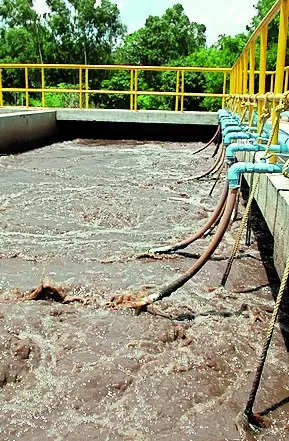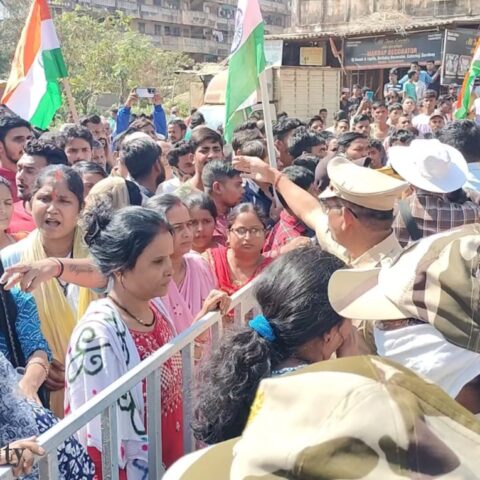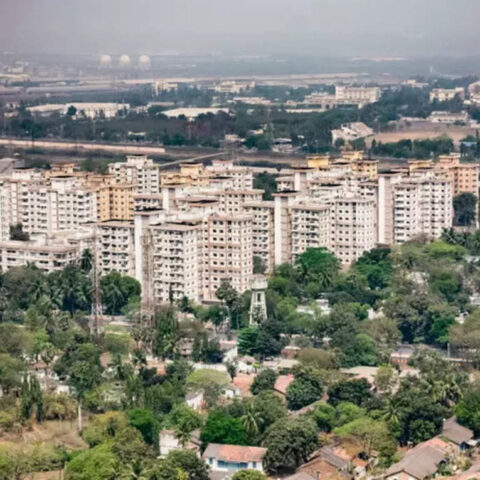
BENGALURU: Cracking the whip on builders over rampant exploitation of groundwater in Bengaluru, Karnataka State Pollution Control Board (KSPCB) has warned developers and house owners that failure to use treated water for construction activities will deprive them of availing occupancy certificates (OCs) from the civic body.
KSPCB said it will not give ‘no-objection certificate’ — a crucial document for builders and house owners to obtain OC from Bruhat Bengaluru Mahanagara Palike (BBMP) or other urban local bodies — if treated water is not used in construction activities.
Hosting an interactive meeting on Wednesday with resident welfare associations (RWAs) and construction industry leaders for popularising the use of treated water in construction activities in east Bengaluru, Syed Khaja Mohiddin, zonal officer (east), KSPCB, said: “If at least 15% of treated water from STPs (sewage treatment plants) is not used during construction, then OC will not be given to the builder or the owner of the building.”
The officer said the use of treated water helps protect regular water sources and reduces depletion of groundwater table across Bengaluru.
However, construction industry representatives expressed their concern over the quality of the treated water and its impact on the strength of the cement structures. Allaying fears of the industry, scientists from the Indian Institute of Science (IISc) assured that the use of treated water during construction is absolutely safe. LN Rao, associate professor at the Centre for Sustainable Technologies, IISc, said a comprehensive study by IISc confirmed the suitability of STP-treated water for construction.
“There are three types of water: activated sludge process, tap water, and membrane bioreactor, which define the quality of the water. The water was monitored for 7, 14, and 28 days, and no adverse changes were observed, giving us enough confidence in its quality,” Rao said. He added that while STP water can be used for mixing cement and curing structures, workers should avoid using it for personal purposes like cleaning or bathing.
He said STPs must adhere to the parameters set by the National Green Tribunal (NGT) and Pollution Control Boards. During the event, Prof HN Chanakya, chief scientist at the Centre for Sustainable Technologies, IISc, suggested that apartments should separate black water and grey water to reduce energy required for STP water segregation.
The confusion over transportation and use of treated water gripped the apartment communities when several stakeholders pointed fingers at an NGT’s previous order that imposed curbs on transport and use of treated water. However, bringing all stakeholders on a platform including representatives from BWSSB, Bangalore Apartments Federation (BAF) and Outer Ring Road Companies Association (ORRCA), KSPCB approved the use of 50% of treated water generated by STPs for construction.
Commercial use
When the city was reeling under shortage of potable water a few months back, the Bangalore Water Supply and Sewerage Board (BWSSB) on March 22 had issued an order permitting residential communities (RWAs) to sell 50% of their STP-treated water commercially, excluding food and medicine industries. BWSSB even inked an MoU with the BAF and priced a kilolitre of treated water at Rs 8. The move was aimed to reduce use of potable water for non-essential activities.
Many apartments were eagerly awaiting commercial use of STP-treated water. Barred from releasing treated water into SWDs, apartment societies were struggling with disposing of excess water generated by their STPs.
Vikram Rai, BAF president, said BWSSB has initiated a pilot survey involving 15 apartments in Bellandur, supplying STP water to construction sites within a five-km radius. “There is a significant water shortage in Bengaluru east. It will soon expand citywide, allowing more apartments to supply water to construction sites.”









